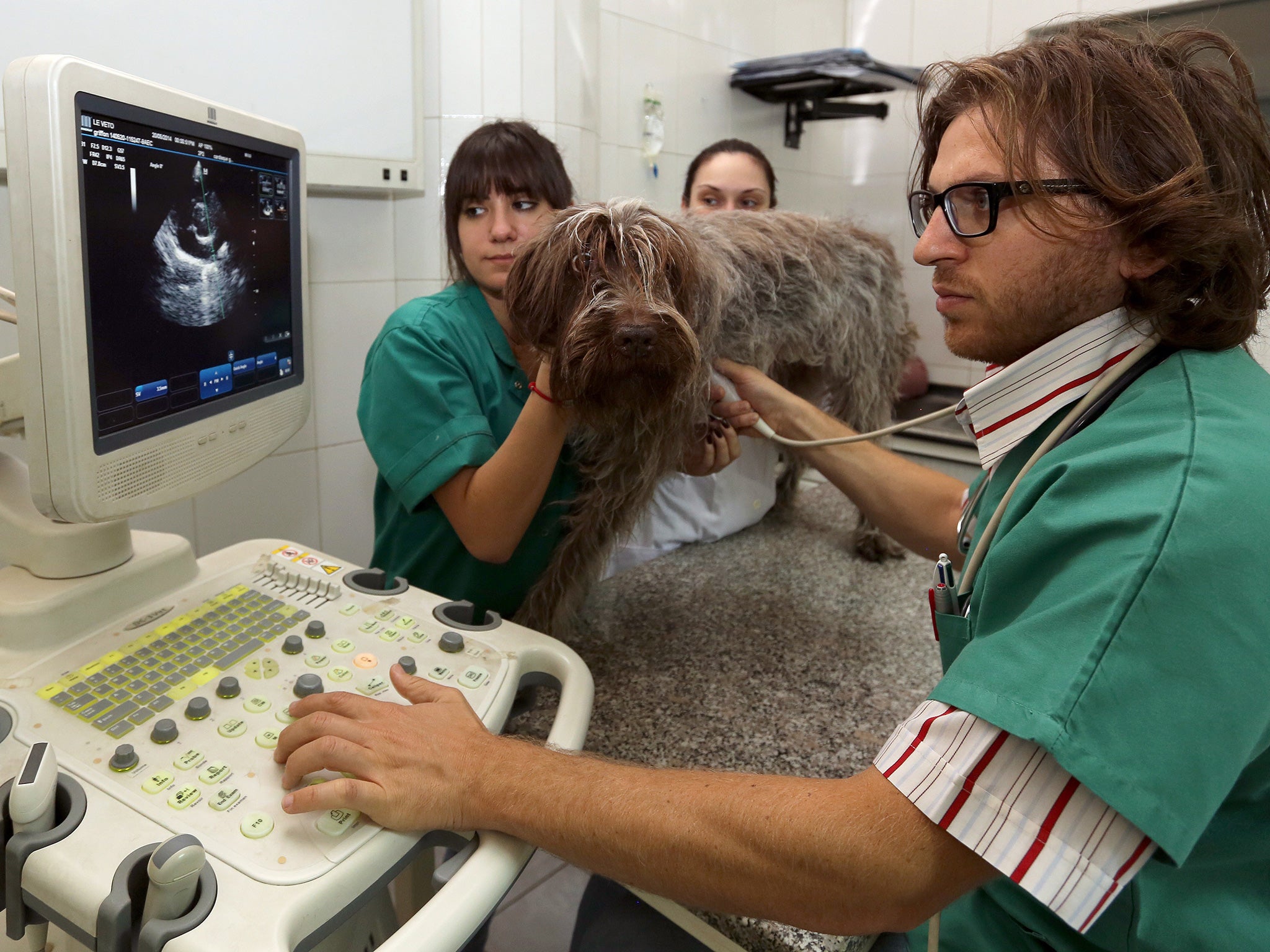Pet owners blamed for increasing risk of MRSA and E.coli by not following animal medicine instructions
Public Health England urges owners of sick pets to ensure antiobiotics are used strictly as directed

Your support helps us to tell the story
From reproductive rights to climate change to Big Tech, The Independent is on the ground when the story is developing. Whether it's investigating the financials of Elon Musk's pro-Trump PAC or producing our latest documentary, 'The A Word', which shines a light on the American women fighting for reproductive rights, we know how important it is to parse out the facts from the messaging.
At such a critical moment in US history, we need reporters on the ground. Your donation allows us to keep sending journalists to speak to both sides of the story.
The Independent is trusted by Americans across the entire political spectrum. And unlike many other quality news outlets, we choose not to lock Americans out of our reporting and analysis with paywalls. We believe quality journalism should be available to everyone, paid for by those who can afford it.
Your support makes all the difference.Pet owners who fail to follow their vet’s advice when giving medicines to their animals are increasing the risk of antibiotic resistance of bacteria which can pass between pets and people, Public Health England (PHE) has warned.
The government health body, the Veterinary Medicines Directorate (VMD) and animal charity the Bella Moss Foundation (BMF) are calling on Britons with sick pets to ensure they use antibiotics as directed.
This comes amid growing concern over antibiotic-resistant bacteria, such as MRSA, campylobacter, salmonella, and E.coli.
Infections caused by resistant bacteria are a major threat to human and animal health, with treatment options increasingly limited, warns PHE.
As part of European Antibiotic Awareness Day, British pet owners are being urged to become ‘antibiotic guardians’ in an attempt to raise awareness of the proper use of antibiotics.
“Many people do not realise that antibiotic resistant bacteria can pass between humans and animals and vice versa,” said Dr Diane Ashiru-Oredope, pharmacist lead for PHE’s antimicrobial resistance programme. “It’s really important that we educate all pet owners that it is not just humans who can be affected by antibiotic resistant bugs; animals are also at risk.”
She added: “It is important that the antibiotics are taken as prescribed...even if your pet isn’t keen on the idea of taking tablets, we are urging pet owners to ensure they do.”
And Jill Moss, founder of the Bella Moss Foundation, a charity which works with vets and owners dealing with antibiotic resistance in pets, said: “While we don’t know for sure how many antibiotics are given to pets we do know more doctors are prescribing them for people, and that more super-resistant types of bacteria are starting to emerge around the world.”
She added: “These potentially fatal infections can travel from humans to pets and back again, and we could all be at risk unless we make a concerted effort to use these precious drugs responsibly – both in people and in the pets we love.”
Professor Pete Borriello, chief executive of the Veterinary Medicines Directorate, commented: “Animal owners can take action to use antibiotics responsibly by following the treatment instructions, completing the course and not re-using or requesting them.”
This comes after the All Party Parliamentary Group on Antibiotics released a report last month calling for the non-medical use of antibiotics to be “critically examined” and for any non-essential use to be “halted.”
“These potentially fatal infections can travel from humans to pets and back again, and we could all be at risk unless we make a concerted effort to use these precious drugs responsibly
The government does not record data on antibiotic resistant infections in pet animals, but salmonella which is resistant to ampicillin has been found in 76 per cent of pigs; and streptomycin-resistant salmonella has been detected in 77 per cent of turkeys. And two thirds of farm animals (cattle, sheep, pigs, turkeys and chickens) have ampicillin-resistant E.coli, according to a PHE report released earlier this year.
Dr Tim Nuttall, from the Royal School of Veterinary Studies at the University of Edinburgh, told The Independent: “Antibiotic resistance affects both human and veterinary healthcare...a lot of the organisms that we see in animals and humans are very similar if not identical, as are a lot of the drugs that we use.”
While the actual risk of infection is very low in healthy people, the “risk of spreading resistance between animals and humans and vice versa is very real,” he said.
Several hundred tonnes of antibiotics are given to animals in Britain each year, with 418 tonnes used in 2013, according to the Government. This is not far short of the 531 tonnes used for people that year.
“Many antibacterials considered important in human medicine are also considered important in veterinary medicine,” said Trisha Colville, president of the British Small Animal Veterinary Association (BSAVA).
“This is why the veterinary profession is working hard to promote and practise responsible approaches to the use of these vital medicines,” she added.
One in four dogs and cats are prescribed antibiotics after a visit to the vets, according to BSAVA, which is now funding research look at levels of antibiotic resistance.
Join our commenting forum
Join thought-provoking conversations, follow other Independent readers and see their replies
Comments